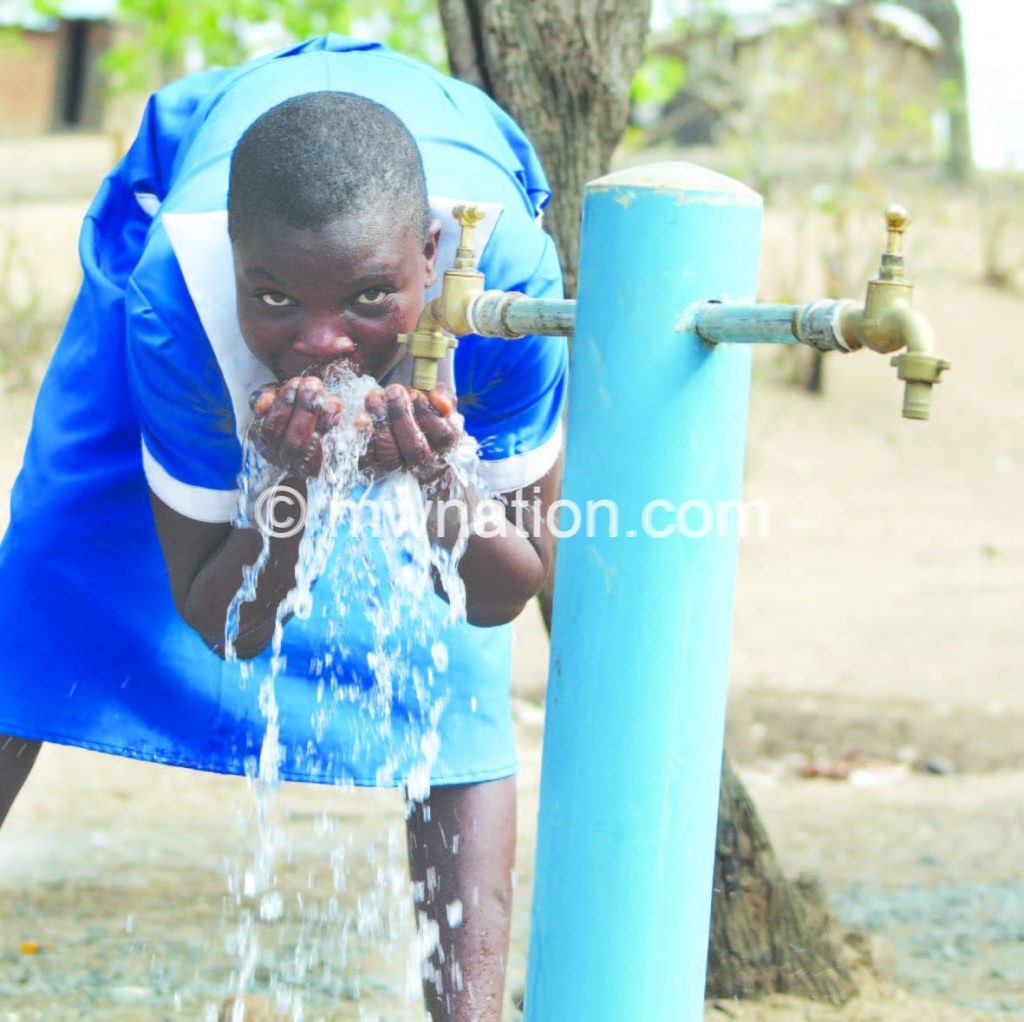Clean water excites learners
On a sunny Friday morning, 14- year-old Clara Charles and a dozen other learners at Namiyala Primary School in Nsanje District are starting their day by drinking clean water from a recently installed tap.
For the almost 1 300 children at the hilly school constructed to escape from chronic floods, the sweltering sunshine typical of the Shire Valley on the southern tip of Malawi is not a foe, but a blessing in disguise.

Their school now has glistening solar panels that turn sunlight into electricity, powering a submersible pump that draws water from a deep borehole into two massive tanks mounted upon the adjacent hill.
The water from the lofty reservoirs is treated with chlorine to kill germs as it flows to four taps that benefit the learners, teachers and surrounding communities.
The gushing taps are to Clara’s school and family what an oasis is to thirsty travellers in the Sahara Desert—a life saver.
They thank Unicef Malawi who, with funding from the Spanish National Committee for Unicef and Energias de Portugal (EDP), a Portuguese energy company, provided climate-resilient water supply for the school and the surrounding community.
“With the taps close to our classes, we drink clean water when we need it. We no longer walk long distances or miss classes. It has also become easier to clean our classrooms, kitchen and toilets,” says Clara, a Standard Seven learner who dreams of becoming a doctor.
The taps have saved the learners from the school’s salty borehole which broke down in 2016.
For the past four years, the learners have been spending their 15-minute breaks walking to an overcrowded communal water pump three football fields away.
The fierce scramble for water would force the villagers to give way to allow the learners to quench their thirst and rush back to class. Still, many learners missed the next class.
“Many times, we returned to class when the lessons were winding up and others just proceeded home for fear of being punished by teachers. We were missing a lot,” Clara recalls.
The solar-powered system has also reduced the risk of diseases from untreated water.
Clara now spends more time in class and her classmate Joseph Noah, 14, expects a dramatic reduction in waterborne infections, especially diarrhoea which once forced learners to skip classes.
“Drinking treated water prevents diseases that frequently affected me in the past, especially at our old school which was destroyed by floods in 2015 when I was in Standard Two,” he says.
Joseph spent three weeks at a congested evacuation camp when the floods reduced homes and toilets to rubble, triggering a cholera outbreak in the area.
Like Clara, Joseph dreams of becoming a doctor so he can treat patients.
As water has become a trusted weapon in disease control amid the Covid-19 pandemic, the taps at Namiyala have made it easy for learners, teachers and nearby households to frequently wash hands with soap to prevent coronavirus.
Bright Chipojola, the headteacher at Namiyala Primary School, is delighted that learners no longer bear the brunt of inadequate water supply.
He says: “We thank Unicef and its partners for making Namiyala the first school in Nsanje North to have tap water.
“Now we have taps like some schools in cities.
“The water system will improve children’s health, enrollment and performance as they spend more time in class. Reliable access to clean water will help the school rise better and attract more children to enrol at the school.”
Equally thankful are the locals surrounding communities.
Beatrice Benala, 47, from Chabe Village where the new school is located, says the taps have eased the hardship faced by both old-timers and newcomers in the hills free from floods.
“We used to struggle for water because over 100 households were scrambling for one borehole. We used to wake up around 4am to go and queue for water, only to return home five or six hours later. This is history. The taps installed by Unicef don’t run dry. Our children now drink safe water both at home and in school,” says the mother-of-seven.
Eluvinesi Joseph, from Mphwiraphwira Village, hopes clean water will lure more villages to vacate flood-prone zones.
“Some families refuse to relocate because they fear to occupy areas without water, schools and other basic services. Now we have a school with safe water. This will ease our burden,” she says.





